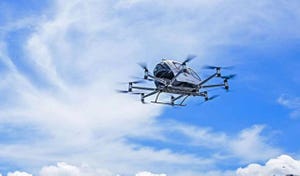The 7 Disruptions on the Horizon: Gartner Summit
Fundamental shifts in something that creates lasting change and tend not to die away

As a technical heads-up aimed at chief information officers, seven potential disruptions were highlighted in a presentation at the Gartner Data and Analytics Summit in Orlando this week.
The disruptions list, a staple at Gartner events
Here, in no particular order, are the seven disruptions that Daryl Plummer, distinguished vice president analyst at Gartner, presented to a packed room at the event:
Tech becomes disposable. Areas that could be disrupted include application life cycles, project timelines, application and data resources and continuous evolution. Key takeaways for CIOs: revamp software teams into product teams focused on the rapid evolution of outcomes.Wireless electric vehicle charging. This could disrupt the wired charging and petrol infrastructure, the cost and timing of charges and battery life. Key for CIOs: upgrade for fleet vehicles and align with industry standards as they develop.The digital human economy. Could impact avatars, idea mining, intellectual rights management and even companionship. If robotics got that good. Key for CIOs: embrace digital twin technology, encourage the use of digital avatars in the workplace and look at guidelines for personal assistant use.Metaverse work experiences. Disrupted would be office buildings, transportation, clothing, entertainment and data centers. For CIOs: reimagine work experiences around real experiences instead of office meetings.Flying cars. Would be a massive transportation shift impacting the air traffic control infrastructure, reshaping cities and creating advertising airspace. CIO takeaways: Assess what problems in moving people and cargo might be solved by using these vehicles.The decentralized autonomous organization. Disrupted would be talent supply and demand, corporate organization models and skills monetization. For CIOs: Learn the principle of virtual organization to combat the brain drain from fixed jobs to decentralized talent.
Graphene replaces silicon. As a chip material replacement, would disrupt existing fabrication models, manufacturing supply chains and long-term investment strategies. For CIOs: identify new suppliers of graphene-based technologies, follow chip development, roadmaps and analyze new possibilities enabled by new, super-fast processor speeds.
About the Author
You May Also Like








